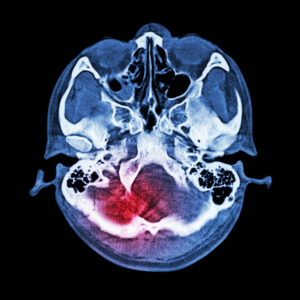Understanding the Devastating Effects of Hypoxic Ischemic Encephalopathy: Explained By Our Oregon Medical Malpractice Lawyer
While most parents are fortunate enough to give birth to their child without complications, making it a joyous event, not all parents are as fortunate. Parents go to the hospital or birthing center eagerly anticipating meeting their child for the first time. For most, they aren’t anticipating that their child will be harmed in the midst of the labor and delivery, forever altering the course of their lives. For some of these parents, their child may harmed during labor and delivery, and may be diagnosed with hypoxic ischemic encephalopathy, a commonly preventable birth injury. There can be devastating effects of hypoxic ischemic encephalopathy which can be made worse when you realize that it could be due to preventable medical malpractice.
While there are many birth injuries that an infant may suffer (nerve damage, brachial plexus injury, cerebral palsy, broken bones, and others), hypoxic ischemic encephalopathy is incredibly devastating and catastrophic. Children with hypoxic ischemic encephalopathy often suffer significant cognitive effects, and the may require lifelong care depending on how severe the damage is. When this occurs due to a physician or other healthcare provider’s error, this is what is considered to be medical malpractice in Oregon or Minnesota.
Hypoxic Ischemic Encephalopathy (HIE) Explained
Hypoxic Ischemic Encephalopathy is as mentioned above, a type of birth injury. This type of birth injury occurs when there is a loss of blood flow (ischemia) as well as oxygen (hypoxia) to the newborn’s brain. This can be due to a variety of reasons, but often is due to a healthcare provider’s error. If the loss of blood flow and oxygen doesn’t occur in the first place, the child would never suffer harm. Additionally, newborns exhibit signs of fetal distress when this occurs. With immediate intervention, brain damage can be minimized or completely eliminated.
The severity of the infant’s brain damage largely depends on how long the baby was deprived of oxygen and blood flow to their brain, as well as where in the brain that the damage occurred. While immediate treatment can reverse some of the brain damage that occurred. most suffer at least some cognitive deficits due to the injury.
Effects of Hypoxic Ischemic Encephalopathy
As previously mentioned, there are devastating effects of hypoxic ischemic encephalopathy. While some children are fortunate enough to suffer only minimal effects, many others are not as fortunate. Common complications include the following:
- Cerebral Palsy – This devastating complication of HIE is irreversible and life-changing. Children with cerebral palsy may have a variety of deficits, ranging from mild impairment requiring interventional services, to requiring complete care for the remained of their lives. Some children may be wheelchair bound and may struggle or be unable to be able to talk, feed themselves, dress themselves, or perform other activities of daily living
- Brain Hemorrhage – brain hemorrhages are unfortunately very common in newborns with HIE. Some types of hemorrhages may only cause minor issues, while other types such as subdural hemorrhages can cause issues with breathing, may induce seizures, and may cause hydrocephalus, bradycardia (low heart rate), or even coma
- Stroke – Asphyxia at birth or during delivery is known to be a risk factor for stroke, due to the lack of oxygen going to the brain. While there are many other causes of strokes, if a newborn suffers a stroke in the setting of hypoxic ischemic encephalopathy, generally speaking it was the birth injury of HIE that was to blame. Stroke can cause mild to severe additional deficits aside from the deficits the newborn will face due to their HIE diagnosis
- Seizures – Sadly, the loss of oxygen and blood flow to the brain can cause seizures. Some children may suffer a few seizures, while others may be diagnosed with epilepsy, and will experience seizures for the rest of their lives. Seizures can cause further brain damage and can cause problems with learning and often affect the newborn’s quality of life
- Vision impairment or blindness – Alterations in vision due to HIE can range from mild deficits (requiring glasses) to severe (complete blindness)
- Hearing impairment – Hearing impairments in children who suffered from HIE may include minor hearing loss, to total deafness
- Learning and developmental disabilities – Due to the brain injury, children with HIE may struggle to meet their developmental milestones (walking, talking, etc). Children with severe HIE may never meet their developmental milestones. Children may struggle to learn new information in school, making schooling a very frustrating process
- Speech Delays or Impairment – Due to brain damage, children may struggle to learn to speak, and may also struggle to understand speech and what people are saying
- Nutrition Impairment – Babies with HIE may have feeding issues and may require tube feeding if they are unable to take food by mouth. These issues may lead to nutritional deficits
- Behavioral Disorders – Damage to the brain can cause behavioral problems. Children with HIE may exhibit behavior problems, making it difficult for them to interact with their peers, family members and society
- Death – In very severe cases of HIE, it may lead to death due to the catastrophic brain damage that occurred due to birth injuries from medical errors.
Common Causes of Hypoxic Ischemic Encephalopathy
There are many causes of HIE. While some may not be avoidable, what greatly matters is how healthcare providers manage these complications as they arise. Proper intervention can prevent HIE entirely. Common causes of HIE include the following:
- Shoulder dystocia
- Placental insufficiency
- Umbilical cord compression
- Umbilical knots
- Uterine rupture
- Trauma during labor and delivery
- Umbilical cord prolapse
- Cardiac arrest
Hypoxic Ischemic Encephalopathy Due to Medical Malpractice
As mentioned above, HIE is often the result of a healthcare provider’s negligence. One mistake can lead to a lifetime of struggles for the newborn and their family. Examples of mistakes leading to HIE include the following:
- Failing to perform a c-section when there are signs of fetal distress and a vaginal birth is no longer safe
- Failing to identify that a baby is too large for the birth canal prior to labor and delivery (cephalopelvic disproportion)
- Failing to identify fetal stress on the monitors
- Failing to intervene if contractions are abnormal, placing the baby at great risk for complications such as HIE
- Failing to treat HIE in a timely manner, leading to continued progression of brain damage
- Mismanagement of complications during labor and delivery
- Failing to properly use labor inducing drugs (i.e. Pitocin)
- Allowing prolonged labor or arrested labor to continue without intervention
These are just a few of the many ways that errors healthcare providers make can lead to HIE, thus leading to further complications that the child will likely struggle with for the rest of their life. Thus, there are devastating effects of hypoxic ischemic encephalopathy which can last forever due to prevent errors and mistakes.
If Your Loved One is Suffering From the Devastating Effects of Hypoxic Ischemic Encephalopathy, Ask Our Minnesota and Oregon Medical Malpractice Lawyer for Help
If you or a loved one have been seriously injured or killed as a result of medical malpractice contact the Oregon Medical Malpractice Lawyers at Kuhlman Law at our number below or fill out the intake form. We offer a free initial case evaluation and handle cases on a contingency fee which means that you pay no money unless we recover.
Our law firm handles cases throughout the state including Bend and Portland Oregon, Redmond, Central Oregon, Sisters, Madras, Multnomah County, Deschutes County, Salem, Eugene, Corvallis, Lane County, Medford, Gresham, La Grande, Albany, Medford, Beaverton, Umatilla, Pendleton, Cottage Grove, Florence, Oregon City, Springfield, Keizer, Grants Pass, McMinnville, Tualatin, West Linn, Forest Grove, Wilsonville, Newberg, Roseburg, Lake Oswego, Klamath Falls, Happy Valley, Tigard, Ashland, Milwakie, Coos Bay, The Dalles, St. Helens, Sherwood, Central Point, Canby, Troutdale, Hermiston, Silverton, Hood River, Newport, Prineville, Astoria, Tillamook, Lincoln City, Hillsboro, and Vancouver, Washington.
We also have an office in Minneapolis, Minnesota and take medical malpractice cases throughout the Twin Cities, including St. Paul, Hennepin County, Ramsey County, Dakota County, Washington County, Anoka County, Scott County, Blaine, Stillwater, and Saint Paul Minnesota.




